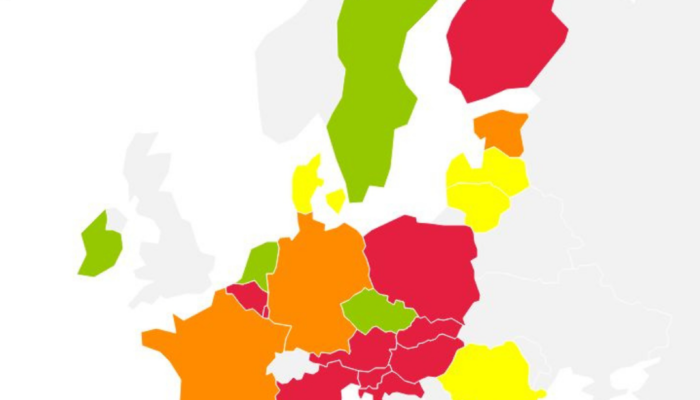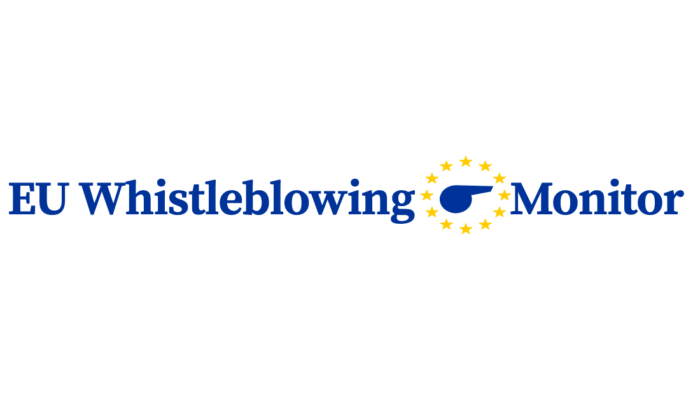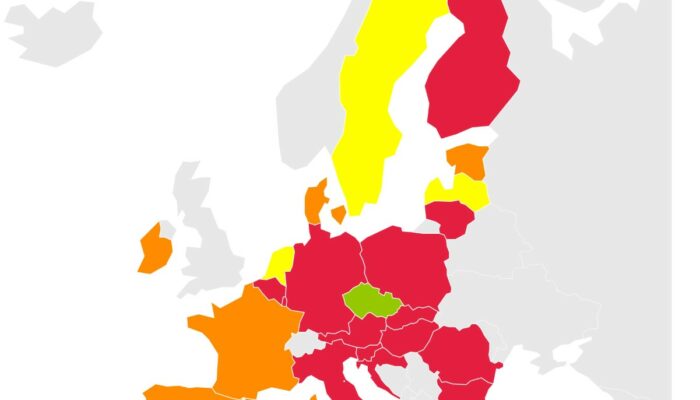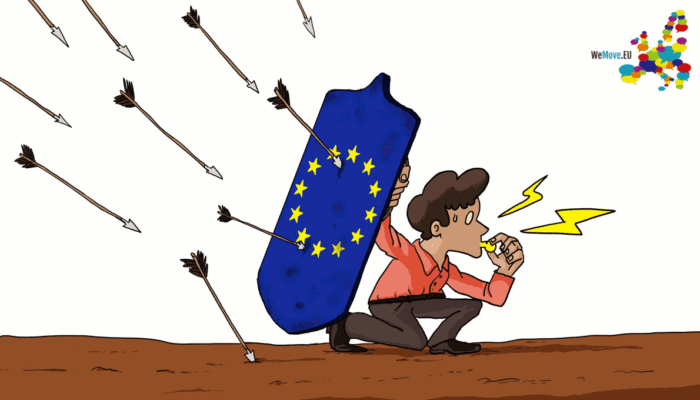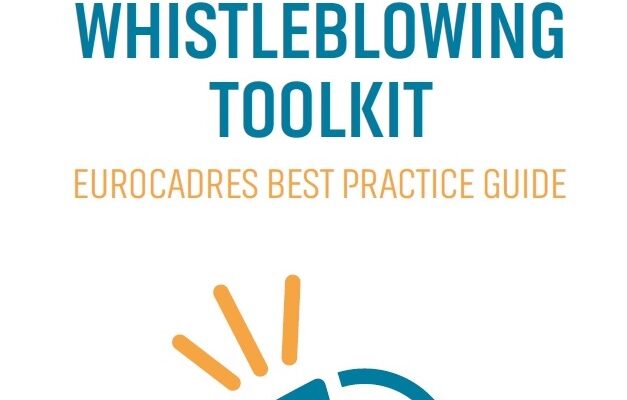Will the EU Whistleblower Directive prohibit the obstruction of justice?
The European Union is currently debating a whistleblower directive designed to protect citizens who report criminal frauds, threats to the environment and other violations of law. One of the most important issues now before EU Council is whether or not to protect employees who make initial reports directly to regulatory authorities or law enforcement agencies.
Stephen M. Kohn; Legal Counsel to Danske Bank whistleblower Howard Wilkinson
The Howard Wilkinson whistleblower case, with which I am closely involved with, clearly demonstrates the urgent need for an EU-wide whistleblower directive to protect the right to report potential violations directly to law enforcement agencies and regulatory authorities. In Mr. Wilkinson’s case Denmark lacked any protections for employees who report criminal violations to regulatory or law enforcement agencies. Thus, Mr. Wilkinson could have been subjected to retaliation, with no remedy in law, if he disclosed the massive money laundering scheme he uncovered to the Danish police, regulatory agencies or even the Danish Parliament.
TAX3 committee - Public hearing on Combatting money laundering in the EU banking sectorUnquestionably, the lack of whistleblower protections resulted in a long delay in capturing the criminals responsible for the illegal money laundering identified by Mr. Wilkinson. In fact, this delay most likely will result in the failure to track down most of the criminal assets, associated with the case.
It is absolutely essential that the EU whistleblower directive follows the precedents set in U.S. law.
Denmark is not unique in failing to protect the basic right of citizens to report crimes to appropriate authorities. I believe it is absolutely essential that the EU whistleblower directive follows the precedents set in U.S. law, and ensures that direct reports to governmental agencies are fully protected. Any restriction on the right of citizens or employees to report crimes to law enforcement or other appropriate authorities would be counter to the basic tenants of democracy, would undermine the rule of law, and would constitute an obstruction of justice.
The European Commission’s initial proposal stated that employees should be required to report violations of law to their bosses, before they can report these violations to appropriate government authorities or law enforcement agencies. Any such requirement would, under well-established legal principles, constitute an obstruction of justice and violate core democratic principles.
A fundamental principle in whistleblower law is the protection of employees who disclose criminal violations to responsible law enforcement officials.
A fundamental principle in whistleblower law is the protection of employees who disclose criminal violations to responsible law enforcement officials. Nothing is more basic. Any interference with this right is an obstruction of justice and cannot be supported under any circumstance.
Common sense dictates that reports directly to government officials must be protected.
Common sense dictates that reports directly to government officials must be protected. For example, if you are looking out of your window, see a young offender mugging, you do not call the young person’s parent. You call the police. The same goes for corporate crime. If a company is stealing from its investors, or engaging in money laundering, illegal secret banking or other offenses, it is clearly important to report these crimes directly to the police as quickly as possible.
The EU whistleblower directive and the precedent of US law
Every U.S. whistleblower law protects the right of employees to directly report violations of law to the government. As recently explained by the U.S. Supreme Court, in a case under the Dodd-Frank/Securities and Exchange Act: “The ‘core objective’ of Dodd-Frank’s robust whistleblower program . . . is ‘to motivate people who know of securities law violations to tell the SEC [U.S. Securities and Exchange Commission]’ By enlisting whistleblowers to ‘assist the Government [in] identify[ing] and prosecut[ing] persons who have violated securities laws,’ Congress undertook to improve SEC enforcement.”
In this case the Supreme Court went so far as to hold that internal reporting was not protected whistleblowing, and in order to be a whistleblower covered under the Dodd-Frank Act an employee was required to report violations to the government.
The proposed EU whistleblower directive should not undermine the ability of whistleblowers to remain confidential, throughout the reporting process.
Most U.S. whistleblower laws permit employees to choose whether to report internally or report directly to the government. See The New Whistleblower’s Handbook, Rule 15. However, no U.S. anti-retaliation law requires that employees file their reports directly to their employer in order to obtain protection.
It is extremely important that the EU does not pass legislation that limits whistleblowers rights to report firstly report appropriate authorities or law enforcement agencies. The proposed EU whistleblower directive should not undermine the ability of whistleblowers to remain confidential, throughout the reporting process, as this creates the opportunity to intimidate witnesses and may tip criminals off to the evidence against them. The EU has a unique opportunity to build on best practice and create a supportive and robust whistleblowers protection legal framework. It is essential that it does not lose its way.
MORE ARTICLES
Progress update: Are EU Governments taking whistleblowing protection seriously?
Today, on World Whistleblowing Day 2021 – less than 6 months before the deadline to transpose the Directive – we highlight key developments in EU countries since the publication of the report.
New civil society monitor on the EU Whistleblowing Directive
The partnership of Eurocadres, the Whistleblowing International Network (WIN) and Transparency International EU is delighted to announce the development and launch of EU Whistleblowing Monitor, a new online platform to monitor transposition and implementation of the EU Directive on Whistleblowing (2019/1937) across Europe.
EU whistleblowing provisions need adjustments in member states
Seven months remains for EU member states to transpose the whistleblower directive into national legislation.
Can transposing the Whistleblower Protection Directive be done on time? Maybe, but not at the cost of transparency and inclusiveness
EU governments were given two years to bring their national whistleblowing frameworks in line with the EU Directive on Whistleblower Protection.
Are EU Countries taking whistleblower protection seriously?
Transposition of the Whistleblower Protection Directive is a chance to ensure that people can expose abuses safely across the European Union – but EU nations might be letting the opportunity pass us all by.
EU Whistleblowing Meter monitors transposition process
The EU Whistleblowing Meter tracks the progress of transposition in each country.
Half a decade of whistleblower directive advocacy
Professor Wim Vandekerckhove from University of Greenwich has analysed the work of the platform in reaching a directive proposal on the protection of whistleblowers.
EVENT – Call to action: Whistleblower protection across the EU, 23 February
EVENT – 23 February, 14:00 – 15:30 (CET)
Best practice guide on whistleblowing for trade unions
What should be the role of trade unions in whistleblowing? Which internal arrangements, should be in place to establish a culture which promotes whistleblowing?
EU Whistleblowing Meter Launched to Monitor Transposition of EU Directive on Whistleblowing
On World Whistleblowing Day, 23 June, the Whistleblowing International Network along with its many partners and colleagues across Europe are launching the EU Whistleblowing Meter


